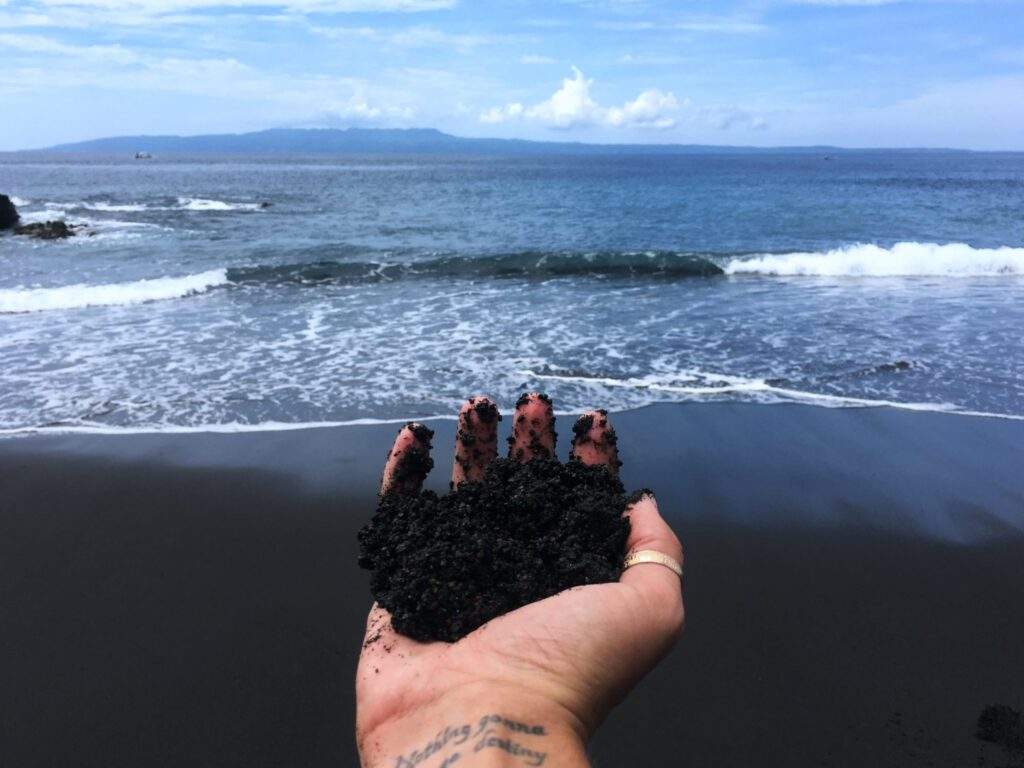Bali, one of Indonesia’s most popular islands, has become a top destination for both local and international tourists. Its widespread appeal lies in its enchanting charm, often described as magical. Known as the Island of the Gods, Bali captivates visitors with its stunning natural landscapes, rich religious traditions, vibrant culture, and unique customs.
1. Bali is Home to One of the Most Beautiful Villages in Indonesia
Penglipuran Village in Bali is renowned as one of Indonesia’s most beautiful and best-preserved traditional villages. It stands out for its immaculate surroundings, authentic traditional architecture, and strong commitment to preserving local culture and heritage.
A visit to Penglipuran Village offers fresh air and stunning green landscapes. The village remains low in pollution, as motorised vehicles are not allowed for tourists, helping maintain its serene environment. Additionally, it stays spotless, with trash bins placed every 30 meters to encourage proper waste disposal.
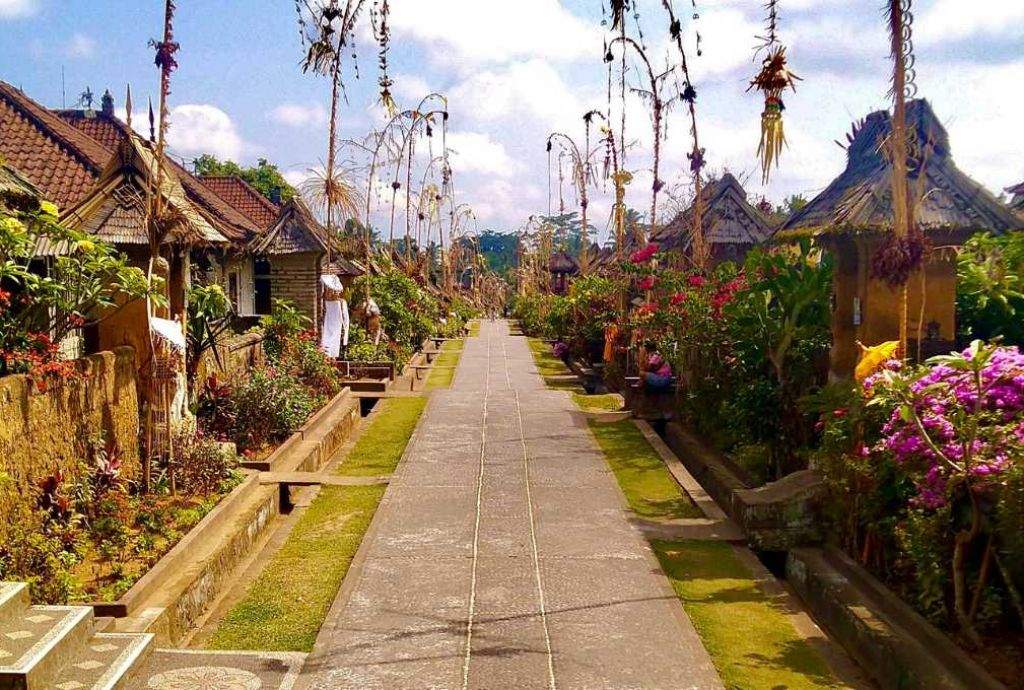
2. Subak Recognized as a UNESCO World Heritage Site
The Subak irrigation system in Bali, Indonesia, has been designated a UNESCO World Heritage Site. On July 6, 2012, it was recognized as part of the “Cultural Landscape of Bali Province: the Subak System as a Manifestation of the Tri Hita Karana Philosophy,” highlighting its cultural and spiritual significance.

3. Cockfighting
Cockfighting holds a unique place in Balinese culture, with three distinct forms practiced: Tabuh Rah, Tajen Terang, and Tajen Branangan. Tabuh Rah is a ritualistic form of cockfighting performed during the Butha Yadnya religious ceremony.
In this sacred tradition, three roosters are fought until they bleed, and the spilt blood is offered as a sacrifice to the spirits, known as Butha Kala, to maintain harmony and prevent disturbances to human life.
Tajen Terang, on the other hand, is a secular cockfight involving gambling, without any religious context. The funds raised from these events are often used for community development, such as building village infrastructure.
Tajen Branangan refers to illegal cockfighting, which is purely associated with gambling. It is conducted outside the bounds of both religious and legal sanction.
Although often believed to be the second-tallest statue in the world, the Garuda Wisnu Kencana (GWK) statue in Bali does not currently hold that title. As of May 15, 2025, the Spring Temple Buddha in China remains the world’s second-tallest statue, standing at 208 meters (682 feet).
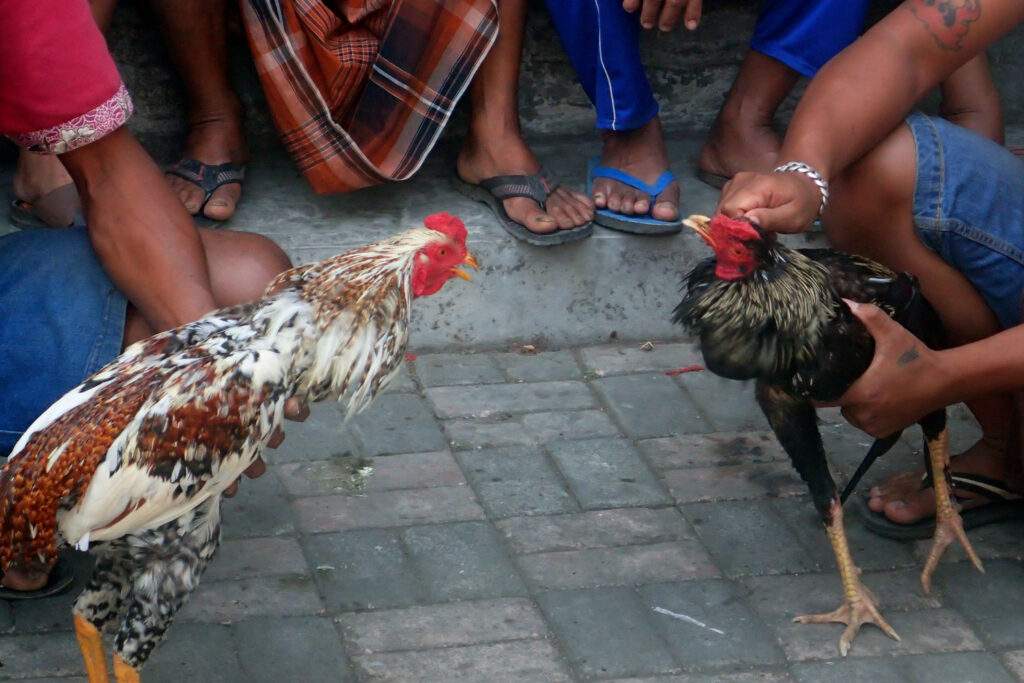
4. Garuda Wisnu Kencana is The Second Highest Statue in the World
The GWK statue, however, is still among the tallest globally, towering at 121 meters (397 feet) including its pedestal. It depicts Lord Vishnu riding the mythical bird Garuda and is taller than several notable statues, such as the Statue of Equality and Vishwas Swaroopam in India.
Visitors to Bali can admire the grandeur of the Garuda Wisnu Kencana (GWK) statue, a remarkable work of art designed by renowned Balinese sculptor I Nyoman Nuarta. The statue’s construction was monumental, taking 28 years to complete from conception to completion.
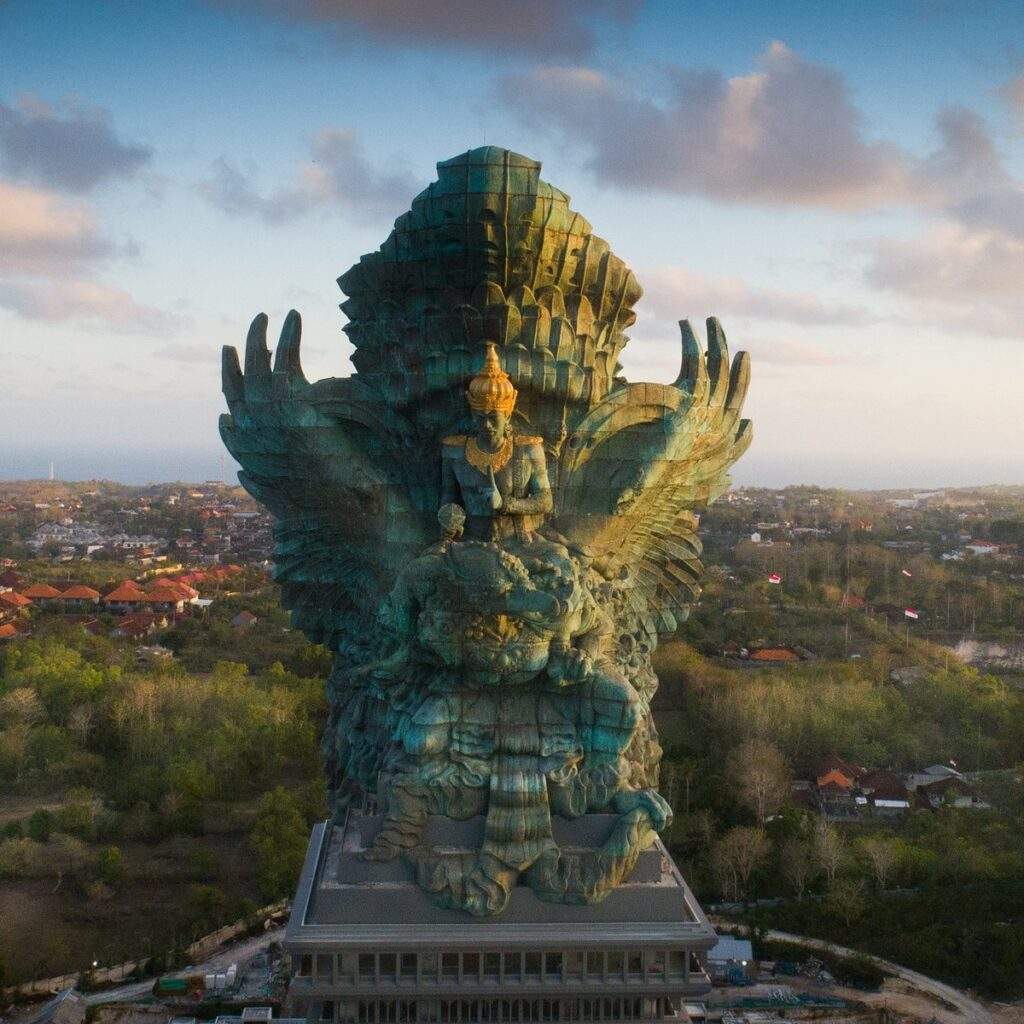
5. Warung is Everywhere in Bali
“Warung” is widely used in Bali and across Indonesia to describe small, family-run shops, eateries, or cafes. These establishments are a staple of the local food culture, known for serving authentic and affordable Indonesian dishes in a casual, homey setting.
A fun fact about warungs is that they are often run by local mothers, bringing a warm, home-cooked feel to the meals they serve. If you’re looking for delicious, budget-friendly food

6. Kissing Festival in Bali
The Bali Kissing Festival, locally known as Omed-omedan, is a one-of-a-kind Balinese tradition celebrated in Sesetan Village the day after Nyepi, the Hindu Day of Silence. During the event, young unmarried men and women take part in a playful ritual where they pull, hug, and kiss each other while being splashed with water. This lively celebration serves as a way to foster social bonds, promote harmony, and even help participants find potential partners.

7. Traditional Coconut Leaf Decorations in Bali
In Bali, traditional coconut leaf decorations—such as Janur and Penjor—play a vital role in religious ceremonies and cultural events. Expertly woven into intricate designs, coconut leaves are used to decorate bamboo poles, create ornamental gateways, and enhance wedding venues. These beautiful creations hold both symbolic and practical significance, representing protection, prosperity, and aesthetic grace.
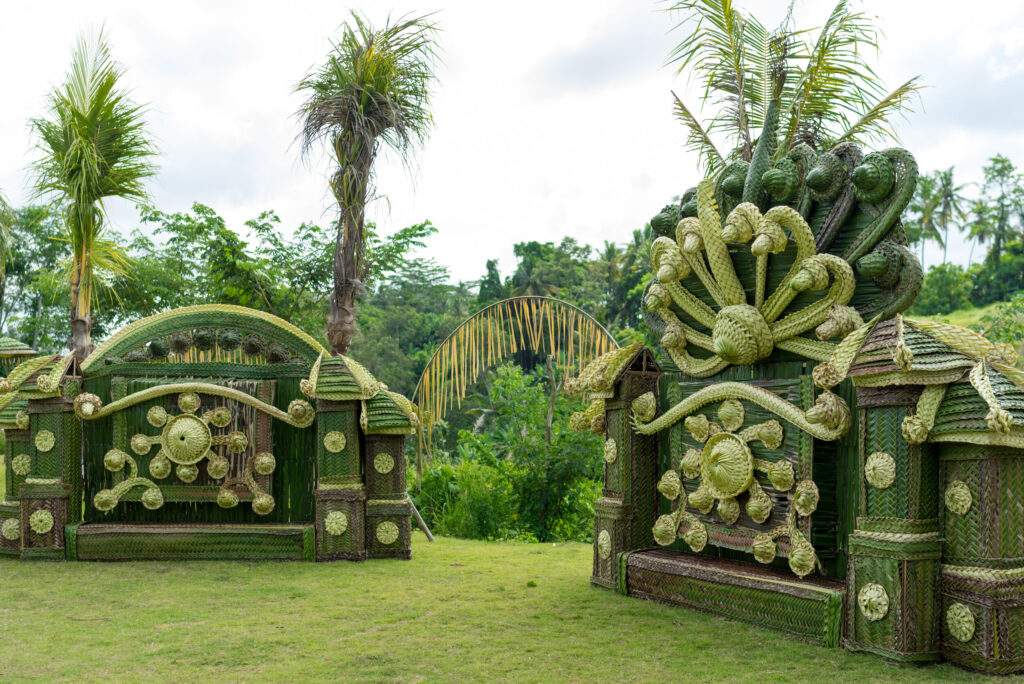
8. Balinese Priests Receive Government Support
In Bali, the government financially supports priests of all recognized religions. As a secular nation, Indonesia has established a system to assist religious leaders across various faiths, ensuring their roles in society are sustained. Balinese religion, which blends elements of Hinduism, Buddhism, and indigenous traditions, embraces a spirit of mutual respect and exchange among different religious practices, fostering harmony and cultural richness. This will be implemented through the National Health Insurance Program.
9. The Coral Triangle
Bali is situated within the Coral Triangle, a marine region formed by the waters of Indonesia, Malaysia, Timor, Papua New Guinea, and other nearby island nations. This strategic location is what gives Bali its rich biological and marine diversity, making it a hotspot for underwater life and coral reefs. It’s undoubtedly one of the more fascinating facts about the island!
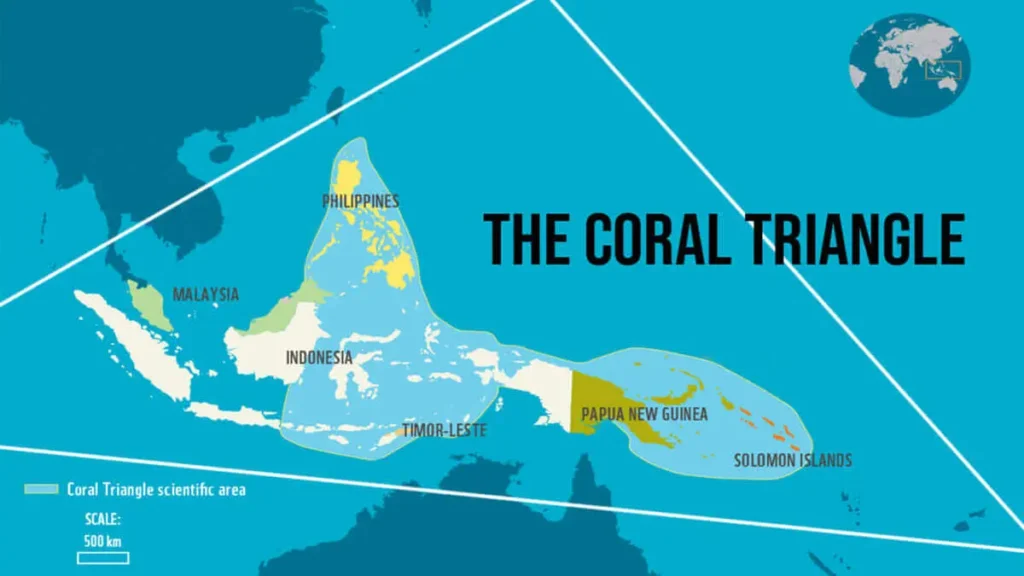
10. Black Sand in Bali
While Bali is famous for its white sand beaches, black sand beaches are another striking feature you might encounter. Due to Bali’s volcanic origin, past eruptions have left behind dark, mineral-rich sand along parts of the coastline. So don’t be surprised if you come across these dramatic black shores—they’re a natural wonder and offer unique and stunning photo opportunities, adding to the many fascinating facts about Bali!
